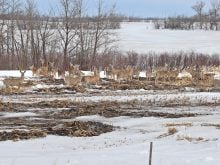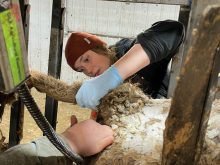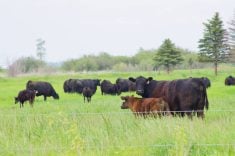REGINA — Amid the recent discovery of foot-and-mouth disease in Germany and ongoing concerns about preventing African swine fever, travellers are reminded to take precautions when re-entering Canada.
The Canada Border Services Agency said it has a no-tolerance policy for foreign soil.
However, it relies on declarations from travellers regarding whether they have visited farms in other countries.
Read Also

Feds propose overhaul of chronic wasting disease control program
Chronic Wasting disease control program getting updated by Canadian Food Inspection Agency with feedback encouraged from producers.
CBSA spokesperson Luke Reimer said the zero tolerance policy includes hiking boots, gardening tools and bicycles.
“Any visible film, patch or clump of mud, dirt or organic matter (such as manure or blood) on or in the goods beyond a fine film of dust constitutes the presence of soil,” he said in an email.
“The CBSA is responsible for the inspection of goods potentially contaminated with soil and has the authority to refuse them entry to order them to be disposed or removed from Canada.”
He said treatment of contaminated goods at a Canadian Food Inspection Agency-approved facility may be authorized by border services officers. They could then be re-inspected and allowed to enter.
“In the case of personal articles, such as footwear, that are contaminated with only small quantities of soil, the officer may allow the traveller to clean and disinfect them under supervision at the port of entry using a sink or plastic tub,” Reimer said.
Earlier this winter, a reader contacted the Western Producer concerned about a fellow passenger on a flight who was allowed to enter at the Calgary airport despite having manure on his boots and telling others he was heading straight to a ranch.
Experts have said people who bring contaminated soil or meat products are among the biggest biosecurity threats for diseases such as FMD.
CBSA works with CFIA to stop unauthorized entry of food, plants, animals and their related products. Airport travellers are required to declare if they have visited farms while abroad and are to be sent for inspection upon arrival.
Such passengers are also advised to not visit a Canadian farm or have contact with farm animals for 14 days.
Contact karen.briere@producer.com
















